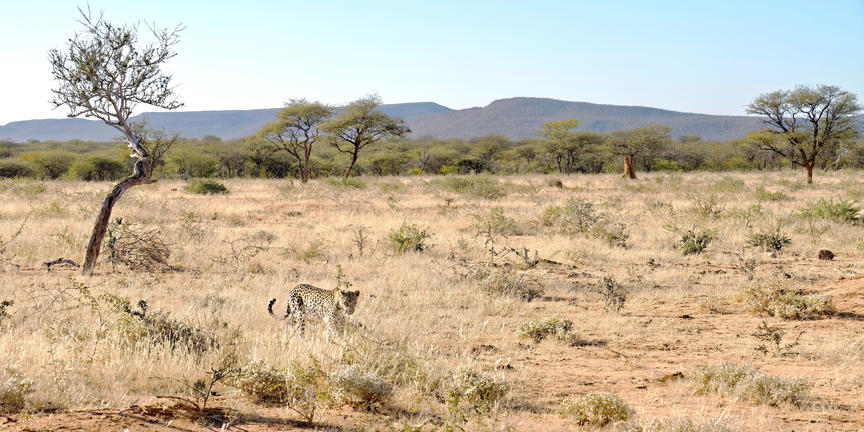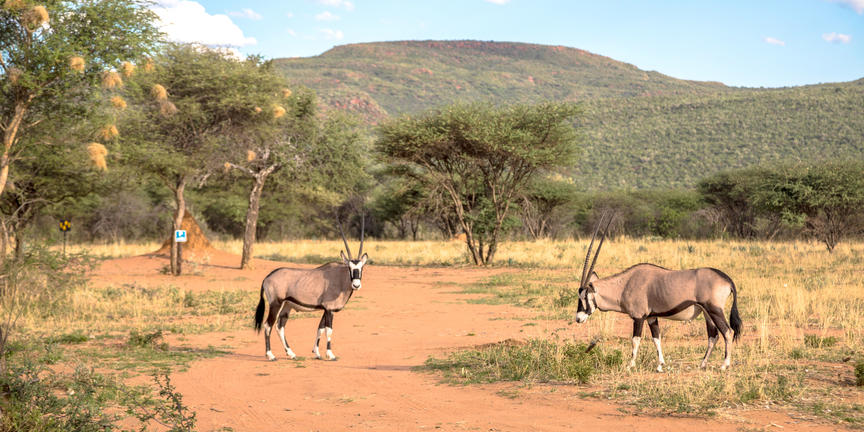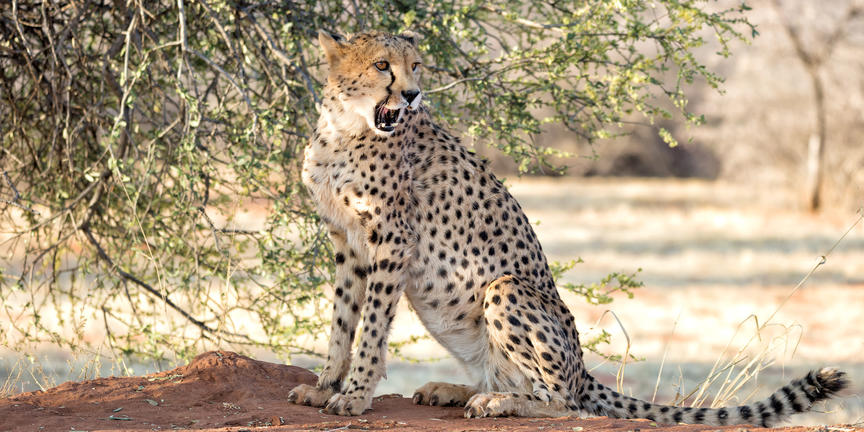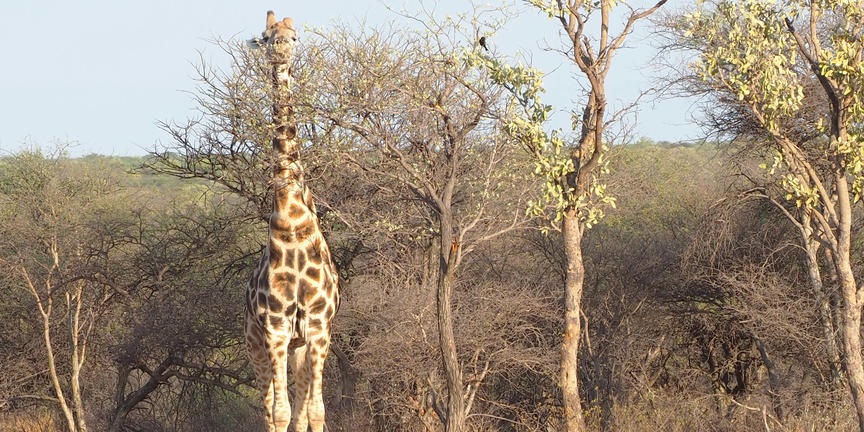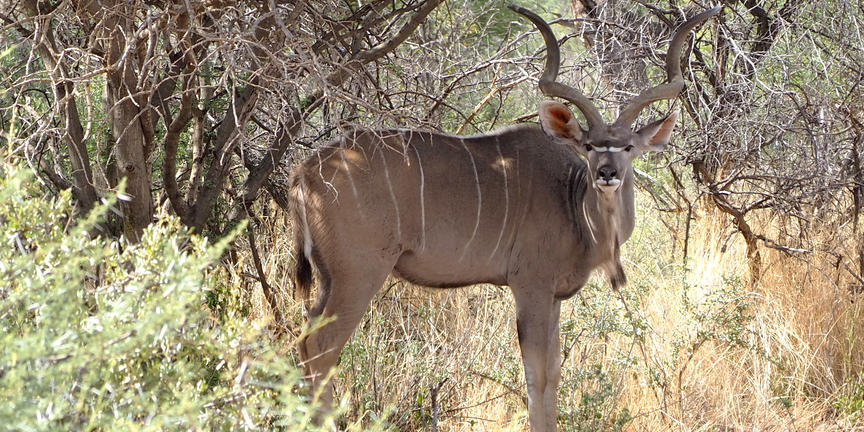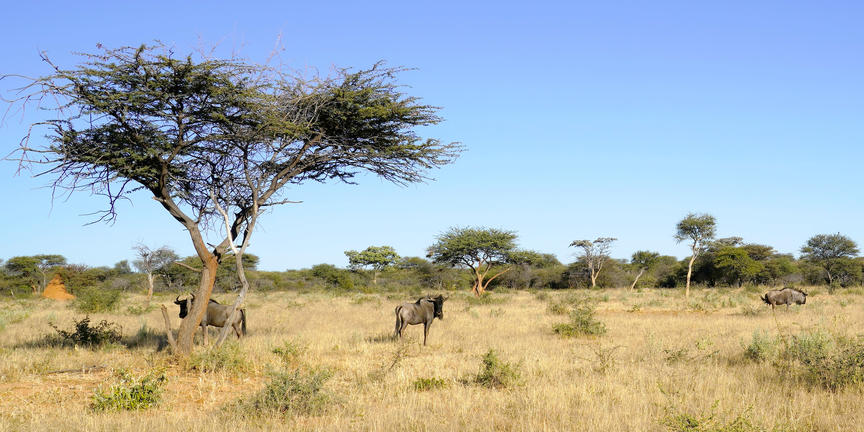Founded in 1991, The AfriCat Foundation is a family-run, non-profit organisation in central Namibia on the private Okonjima Nature Reserve. Their mandate is to assist with the long term conservation of Namibia’s large carnivores: the cheetah; the beautiful leopard; the brown hyena and of course the icon of Africa: the lion.
Wildlife and the Namibian Farmers
The Hanssen family settled here in the 1970s, and during their farming years were exposed to extreme cattle loss as cheetahs and other predators took their livestock. Hunting, trapping and shooting these predators didn't alleviate the problem in any way, so, thinking, "if you can't beat 'em..." they switched to conserving these fine animals instead.
Enter AfriCat. AfriCat provides solutions to the clash between Namibia's farmers and predators through farmer assistance, education, research and welfare. Working closely with communal and commercial livestock farmers, they introduce diverse and effective farm management techniques to protect both livestock and large predators simultaneously.
About 3,000 cheetahs - a third of the world's population lives in Namibia and their genes are considered the purest. So when your grandkids' grandkids see a cheetah in full sprint gasping in awe, chances are its continuing survival was due in no small part to the cheetahs of Namibia and the Hanssen family.
With a dwindling global population of lions, these predators have been declared a protected species in Namibia with an estimated total between 600 to 1000 in the whole country. AfriCat North, bordering on Etosha National Park has been set up to protect, research and rehabilitate lions into the global gene pool, again, their disease-free genes make the Etosha lions particularly attractive to conservationists.
AfriCat's Work
The youth education programme run by AfriCat creates a greater understanding of the importance of wildlife conservation, which is essential in the younger generations – this program to date has reached around 20,000 children. Ongoing research for the long term conservation of Namibia's predators in their natural habitat is done in close collaboration with the conservation authorities, scientists, researchers and farming communities.
AfriCat rehabilitates orphaned or injured animals at Okonjima until they can be released back into the wild. Over 1,000 predators have been saved since 1993, and 86% have been released back into the wild.
Combining Tourism and Conservation
With tourism and conservation having such a good relationship in Africa, AfriCat have embraced tourism firstly for its conservation strategy, and secondly as a business model which is sustainable. You are therefore able to visit and stay on the family farm which is AfriCat's base.
Okonjima's 22,000 hectare private nature reserve, the home of The AfriCat Foundation, is surrounded by the the Omboroko Mountains, 50km south of Otjiwarongo in central Namibia.
You can choose from a range of activities during your stay at Okonjima - leopards in the reserve are radio-tracked from AfriCat's game viewing vehicles as they roam freely and catch their own prey. Nocturnal wildlife such as porcupine, honey-badgers and caracal can be seen from a hide specifically designed for these animals, and you'll get valuable insight into AfriCat's work at the Carnivore Care Centre. You can join a Bushman Trail which is easy walking and very informative, and you can learn how traditional weapons and tools were made, and how the San people survive in the unforgiving environment. There are also self-guided walking trails, cycling trails and radio-tracking on-foot of the rehabilitated cheetah, wild dog and hyena.
Other wildlife at Okonjima includes jackal, aardwolf, bat-eared fox, aardvark, pangolin, genet, polecat, kudu, oryx, red hartebeest, gnu or blue wildebeest, eland, impala, giraffe, zebra, steenbok, duiker, warthog, baboon, rock hyrax, red rock rabbit, hare, ground squirrel, mongoose, and over 250 bird species.
Each year, AfriCat holds their Annual Big Cat Health Examination weekend, which tourists are allowed to join in on specific tours. This is a rare opportunity for remarkable up-close access to cheetahs over the two days, assisting the vets with vaccinations, health examinations, weighing, blood sampling and the administering of contraceptive implants where applicable.
Among some of the celebrities who have visited Okonjima are Brad Pitt and Angelina Jolie, Joanna Lumley, Wesley Snipes and family, Linford Christie and Ian Wright.
A visit to The AfriCat Foundation will certainly give you a fascinating and unique insight into predator and big cat conservation in Namibia.
